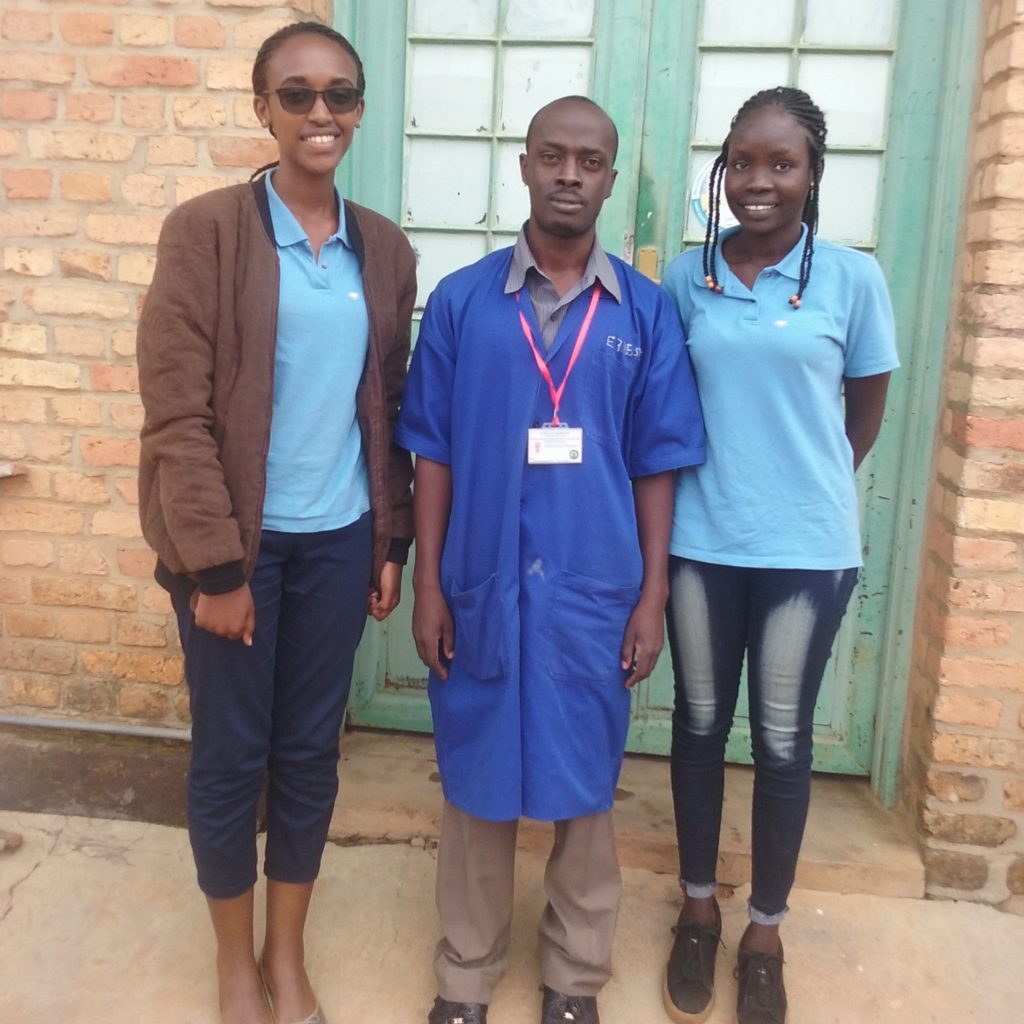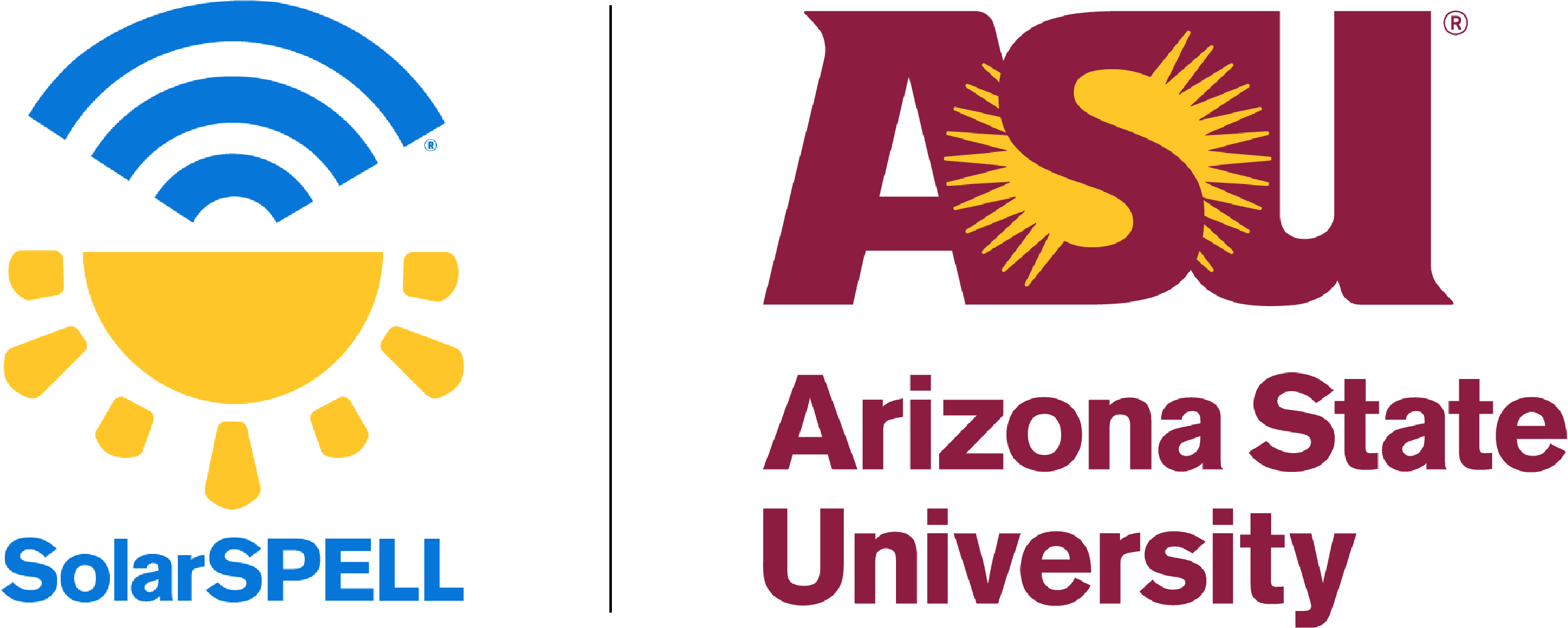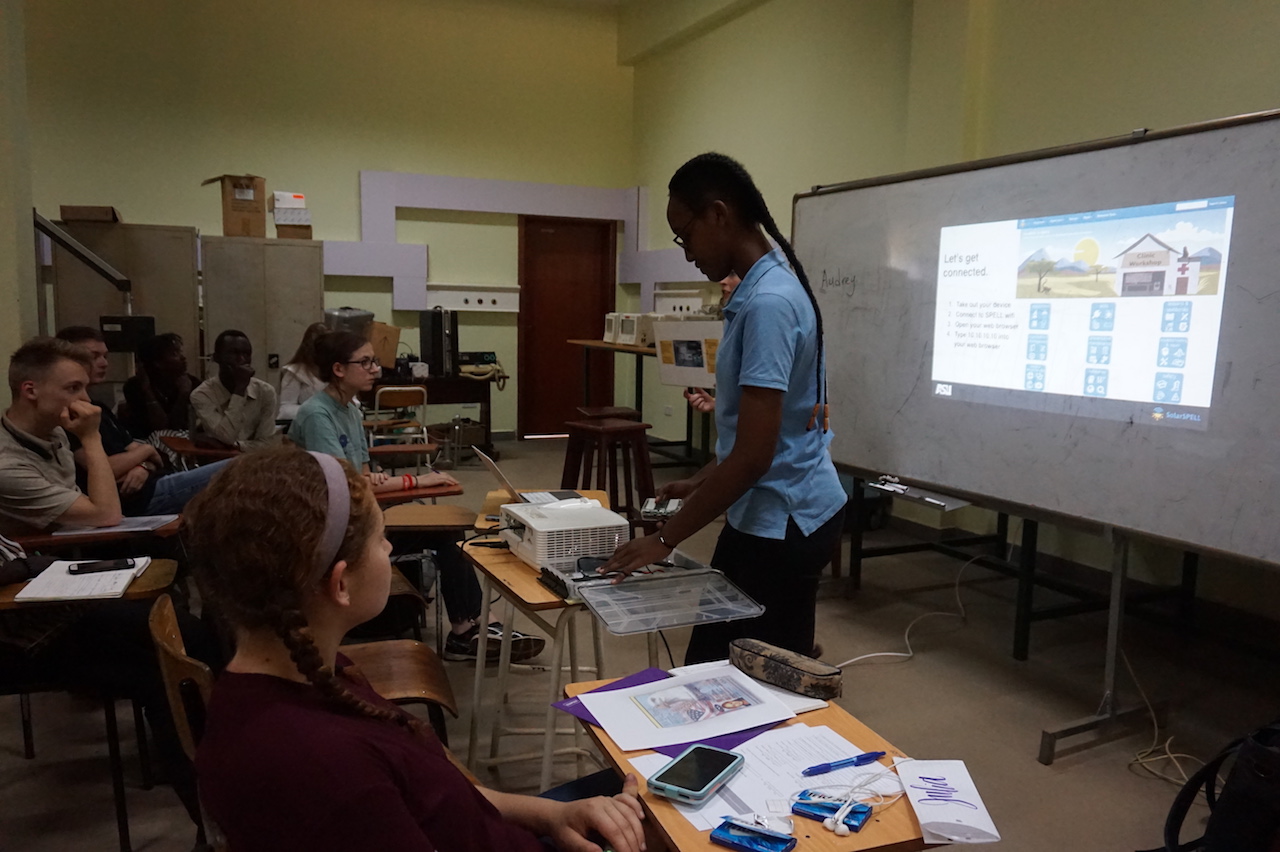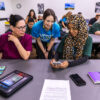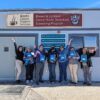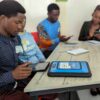Audrey is a Bridge2Rwanda Scholar who interned for the SolarSPELL BMET project. During her internship, she interviewed BMETs across Rwanda, assisted with the development of the BMET library, and trained volunteers from Engineering World Health’s Summer Institute. The following is an excerpt from her experience:
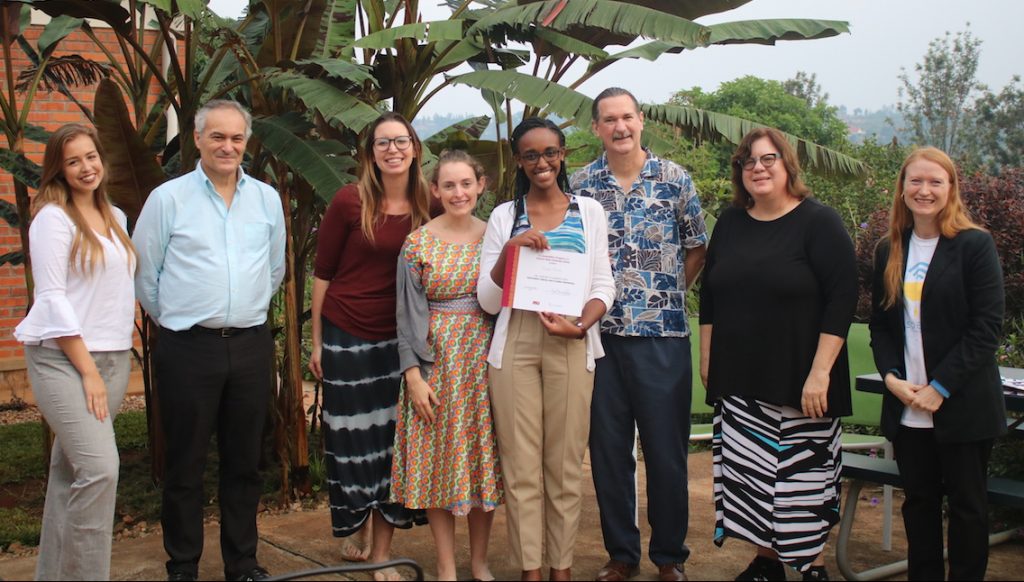 For the last three months, I have been working with the Solar SPELL BMET library team. Part of my job, which is the exciting part, was going to hospitals in various parts of Rwanda to interview biomedical technicians in order to get their opinions about the content to add to the library. I was interested in this job because I envision my role to be making an impact in the health sector, which is one of the fields that needs to be developed and improved for the well-being of the Rwandan citizens and the development of Rwanda. Working with SolarSPELL was a way for me to learn what challenges are faced by various hospitals in the country especially in Biomedical Engineering.
For the last three months, I have been working with the Solar SPELL BMET library team. Part of my job, which is the exciting part, was going to hospitals in various parts of Rwanda to interview biomedical technicians in order to get their opinions about the content to add to the library. I was interested in this job because I envision my role to be making an impact in the health sector, which is one of the fields that needs to be developed and improved for the well-being of the Rwandan citizens and the development of Rwanda. Working with SolarSPELL was a way for me to learn what challenges are faced by various hospitals in the country especially in Biomedical Engineering.
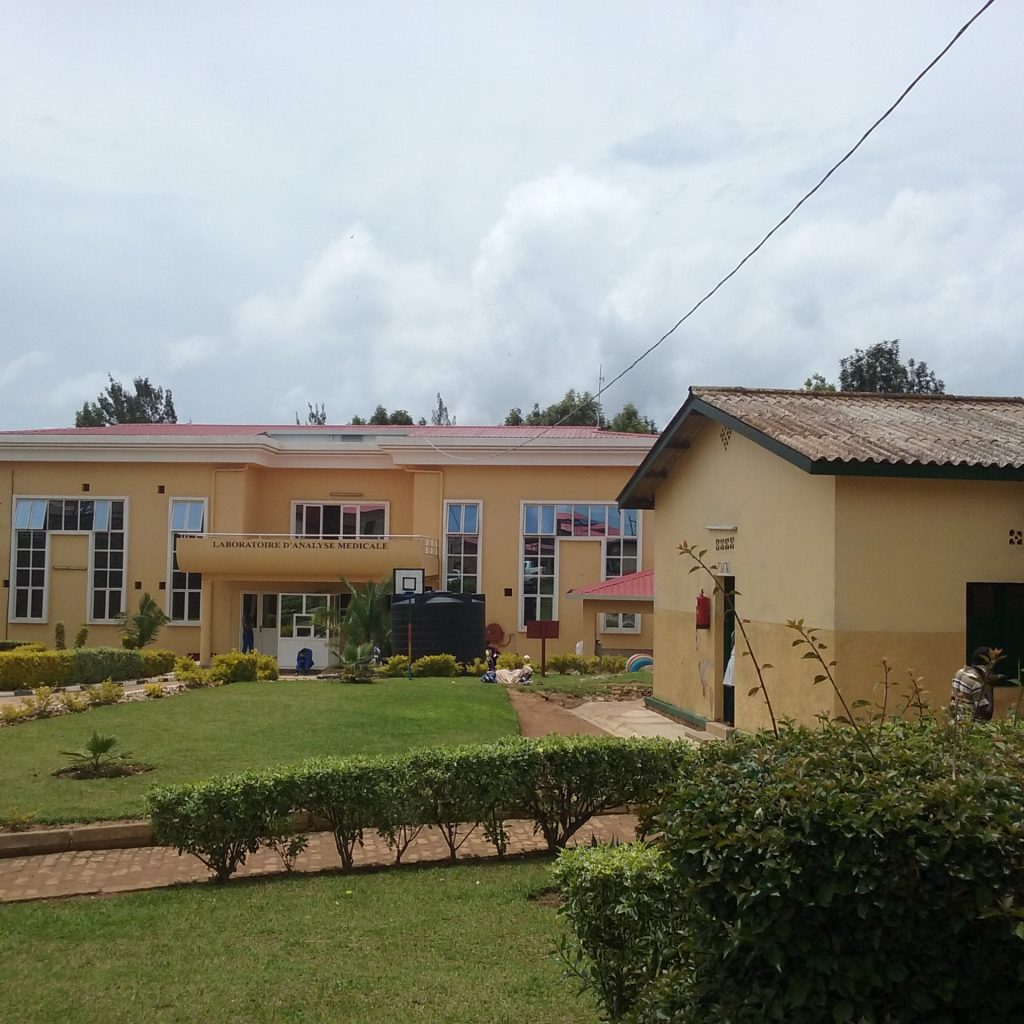 Around mid-May, my colleague and I visited a hospital in the southern part of Rwanda in a sector called Kibilizi. Kibilizi hospital remains the only main hospital in Gisagara district and receives patients from the whole district. The hospital is 30 minutes from the main road in a remote place. I was amazed by the way the technician welcomed us. He was very excited about the project even before we got to explain it. Indeed, this has been the same experience at more than ten hospitals we were able to visit.
Around mid-May, my colleague and I visited a hospital in the southern part of Rwanda in a sector called Kibilizi. Kibilizi hospital remains the only main hospital in Gisagara district and receives patients from the whole district. The hospital is 30 minutes from the main road in a remote place. I was amazed by the way the technician welcomed us. He was very excited about the project even before we got to explain it. Indeed, this has been the same experience at more than ten hospitals we were able to visit.
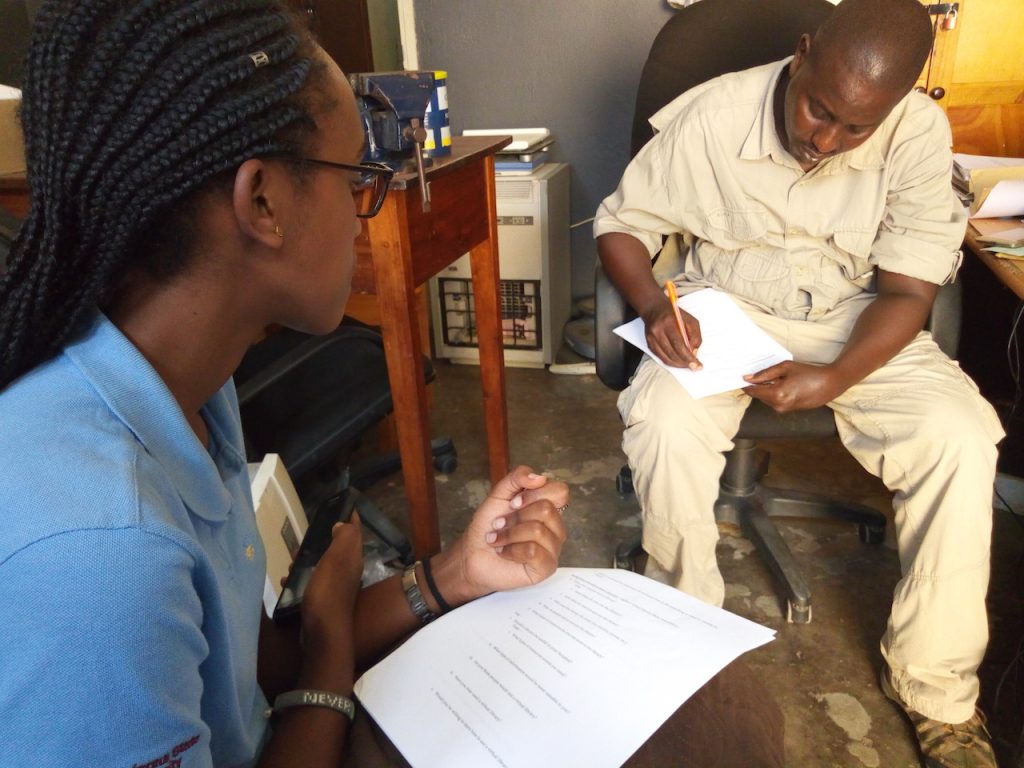
He is the only BMET who enthusiastically serves all the health centers in the region. After the interview, he kept telling us how the library will be very useful in his daily work as he is the only BMET in the region. Most rural hospitals in Rwanda suffer the same setbacks. They either do not have a constant supply of electricity or have no working Wi-Fi at all. Since Biomedical Engineering is a new field in Rwanda, hospitals also suffer from the lack of enough technicians who work full time at the hospital. Despite their scarcity, I have seen how they are self-motivated, courageous, and enthusiastic about their job. They all stay in touch and share information on how to repair certain pieces of equipment at their respective hospitals via online platforms like WhatsApp.
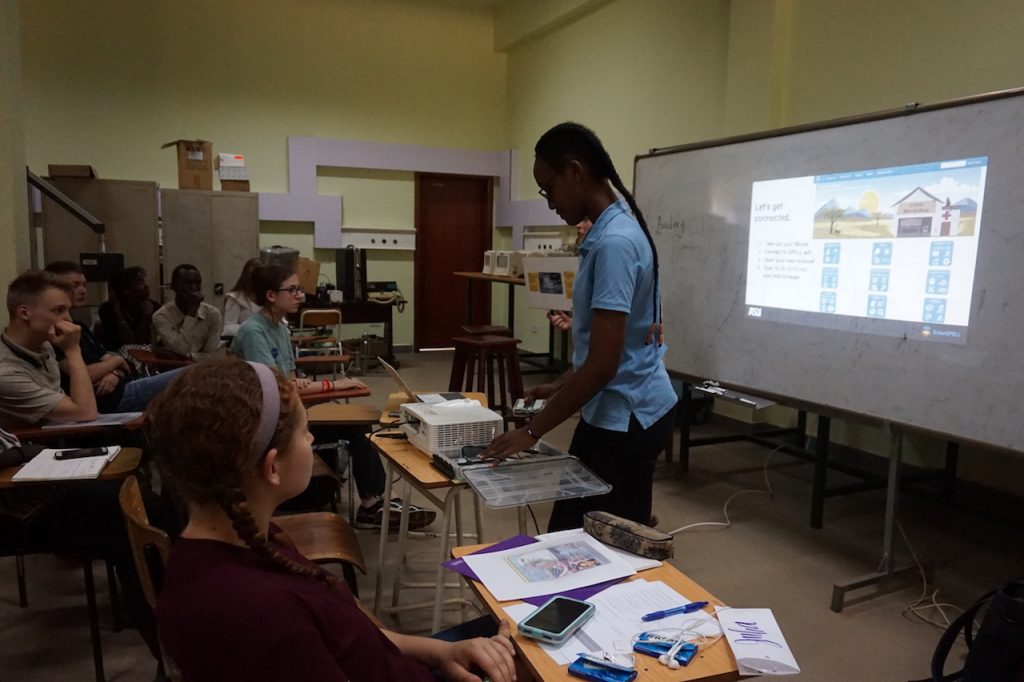
From talking to various Biomedical Technicians in Rwandan hospitals, I understood what it meant to work in most resource-constrained conditions. It meant sacrifice, innovation, and welcoming anything that might help to get the job done. These BMETs’ work means to wake up in the morning and be called to fix a piece of equipment that has no service or operating manual or does have a manual, but in a completely foreign language. However much the Ministry of Health in Rwanda tries to do in order to bring machines into the country with service manuals, a lot needs to be done as far as repairing donated or new equipment goes. In this case, the SolarSPELL BMET library will be very helpful because it contains mostly service and operating manuals written in English, which all BMETs understand and speak, for machines found in the developing world. With its various content ranging from Troubleshooting guides to Do It yourself skills, the BMET library will be a significant resource for BMETs in East Africa in their everyday work.
